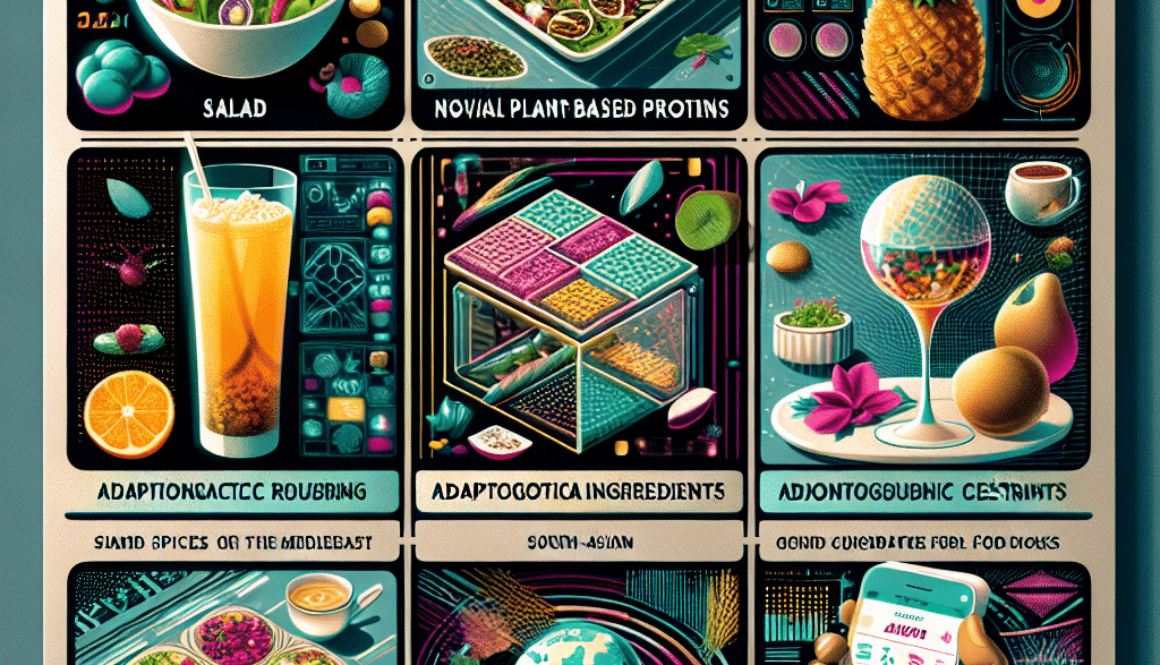Plant-Based Taste Hurdles: 3 Challenges with Solutions
-
Table of Contents
Plant-Based Taste Hurdles: Overcoming Flavor Challenges
The rise of plant-based diets has been meteoric in recent years, driven by health, environmental, and ethical considerations. However, despite the growing popularity, there remain significant taste hurdles that can deter consumers from fully embracing plant-based foods. This article delves into three major challenges associated with the taste of plant-based products and provides practical solutions to overcome them.
Challenge 1: Mimicking Traditional Meat Flavors
One of the biggest challenges in the plant-based industry is replicating the complex flavors and textures of animal-based meats. Consumers often expect plant-based alternatives to closely resemble the taste and mouthfeel of traditional meats.
- Natural Flavorings: The use of natural flavorings derived from vegetables, fungi, and legumes can enhance the umami and savory notes in plant-based meats.
- Fermentation: Fermentation processes can develop depth and complexity in plant-based proteins, similar to aged meats.
- High-Moisture Extrusion: This technique aligns plant proteins in a way that mimics the fibrous texture of muscle, improving the mouthfeel of plant-based meats.
Case studies from companies like Beyond Meat and Impossible Foods demonstrate the effectiveness of these strategies. They have successfully created plant-based products that satisfy even the most discerning meat-eaters.
Challenge 2: Eliminating Off-Flavors in Plant Proteins
Plant proteins can often have strong, distinctive flavors that are not always palatable. These off-flavors can be a significant barrier to consumer acceptance.
- Protein Purification: Removing non-protein components that contribute to off-flavors can make plant proteins more neutral in taste.
- Flavor Masking: The use of flavor masking agents can help to neutralize or cover undesirable tastes without affecting the overall flavor profile.
- Genetic Modification: Advances in genetic engineering can modify plants to produce proteins with fewer off-flavors.
Statistics show that improving the taste of plant-based products directly correlates with increased consumer satisfaction and repeat purchases. Companies like Puris and Burcon NutraScience are leading the way in developing plant proteins with reduced off-flavors.
Challenge 3: Achieving the Right Flavor Balance
Creating a balanced flavor profile that appeals to a broad audience is essential for the success of plant-based foods. This involves not only masking undesirable flavors but also enhancing the overall taste experience.
- Spices and Seasonings: A well-crafted blend of spices and seasonings can elevate the taste of plant-based foods to new heights.
- Collaboration with Chefs: Working with culinary experts can help in developing recipes that bring out the best in plant-based ingredients.
- Consumer Testing: Regular consumer taste tests can provide valuable feedback to fine-tune flavor profiles for mass appeal.
Examples of successful flavor balancing can be seen in products from brands like Quorn and Gardein, which have become household names in the plant-based sector.
Conclusion
Overcoming the taste hurdles in plant-based foods is crucial for the continued growth of the industry. By focusing on mimicking traditional meat flavors, eliminating off-flavors, and achieving the right flavor balance, manufacturers can create products that satisfy even the most skeptical consumers. The solutions outlined above, supported by innovative technologies and culinary expertise, pave the way for a future where plant-based foods are indistinguishable from their animal-based counterparts in terms of taste and enjoyment.
ETChem’s Protein Products: Enhancing Plant-Based Flavors
For manufacturers looking to improve the taste and texture of their plant-based offerings, ETChem’s protein products present an excellent solution. Their high-quality collagens, derived from various sources, are characterized by a neutral taste and instant solubility, making them ideal for a wide range of applications in the food and beverage industry. By incorporating ETChem’s protein products into plant-based foods, manufacturers can overcome common taste hurdles and deliver a superior consumer experience.
About ETChem:
ETChem, a reputable Chinese Collagen factory manufacturer and supplier, is renowned for producing, stocking, exporting, and delivering the highest quality collagens. They include marine collagen, fish collagen, bovine collagen, chicken collagen, type I collagen, type II collagen and type III collagen etc. Their offerings, characterized by a neutral taste, instant solubility attributes, cater to a diverse range of industries. They serve nutraceutical, pharmaceutical, cosmeceutical, veterinary, as well as food and beverage finished product distributors, traders, and manufacturers across Europe, USA, Canada, Australia, Thailand, Japan, Korea, Brazil, and Chile, among others.
ETChem specialization includes exporting and delivering tailor-made collagen powder and finished collagen nutritional supplements. Their extensive product range covers sectors like Food and Beverage, Sports Nutrition, Weight Management, Dietary Supplements, Health and Wellness Products, ensuring comprehensive solutions to meet all your protein needs.
As a trusted company by leading global food and beverage brands and Fortune 500 companies, ETChem reinforces China’s reputation in the global arena. For more information or to sample their products, please contact them and email karen(at)et-chem.com today.




















